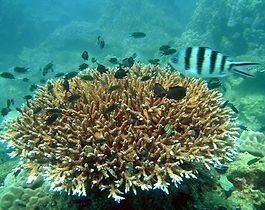


Introduction
What is sustainability?

Sustainability is based on a simple principle: Everything that we need for our survival and well-being depends, either directly or indirectly, on our natural environment. Sustainability creates and maintains the conditions under which humans and nature can exist in productive harmony, that permit fulfilling the social, economic and other requirements of present and future generations.
Sustainability is important to making sure that we have and will continue to have, the water, materials, and resources to protect human health and our environment.
The position of LPFoods
LP Foods is steeped in a rich and illustrious tradition, following the legacy left behind by Amati Vongole, a respected family business which pioneered processing and canning of clams in Europe and exporting them to as far away as Japan.
In 1990s, Livio Petz followed in the footsteps and pioneered clam exports from Vietnam to Europe. He was the considered amongst the first major contributors to the flourishing of the seafood industry in Vietnam and was a leader in the Italian seafood market.
In 2005, Emanuele and Lisa Petz founded LP Foods in Singapore, far from the shores of our CEO’s motherland. Singapore was a natural choice as its strategic location and efficient infrastructure allows us to reach out to not only Italy today, but also France, Spain, USA and Spain.
In 2013, LP Foods achieved the certification of Top 100 international enterprise and Top 10000 Singapore SME company. Beside that our slogan “We work to have the Happiest Customer” emphasizes that we not only supply good quality but also sustainable sources, therefore it became a motto for many internal and international enterprises when talking about LP Foods and it was contributed to make Vietnamese seafood market expanded throughout the worlds.
What is sustainable seafood?
Sustainable seafood is seafood that is either caught or farmed in ways that consider the long-term vitality of harvested species and the well-being of the oceans. It was first promoted through the sustainable seafood movement which began in the 1990s. This operation highlights overfishing and environmentally destructive fishing methods. Through a number of initiatives, the movement has increased awareness and raised concerns over the way our seafood is obtained.
The sustainable seafood movement began when scientists, conservationists and leaders in the seafood industry realized that human demand for seafood was having an impact on the long-term viability of fish, one of the world’s most widely traded and valuable wildlife commodities. Seafood sustainability has gained increasing momentum in recent years; beginning with a committed few, it now is fueled by the energy of many leaders from across fishing and fish-farming industries, seafood businesses, media and conservation groups.
Many organizations look to the following guidelines for fish and shellfish, adapted from the Marine Stewardship Council‘s criteria. They should be
• from a healthy population,
• caught or farmed using methods that don’t harm marine life, and
• from fisheries or farms that are responsibly managed.
“Helping businesses source and sell sustainable seafood”
What is sustainable fishing?
Sustainable fishing guarantees there will be populations of ocean and freshwater wildlife for the future. Aquatic environments are home to countless species of fish and invertebrates, most of which are consumed as food. (Others are harvested for economic reasons, such as oysters that produce pearls used in jewelry.) Seafood is respected all over the world, in many diverse cultures, as an important source of protein and healthy fats.
Sustainable fishing is an ethically sound method of supplying seafood sources to humans without damaging the ecosystem. A fishery that is sustainable is one that employs maintainable practices that will not affect the targeted species' ability to maintain healthy population levels. Sustainable fishing will not adversely impact other species within the ecosystem by removing their food source.
When sustainable fishing practices are not employed, it is possible that an entire species can be abolished from a single ecosystem, affecting not only the humans who consume this food, but other species within the system that rely upon it as their own food source. In order for people to take an active approach towards ensuring that they are purchasing seafood products from companies that practice sustainable fishing, it is important to conduct research as well as look at labels. Supporting companies that respect the chain of life and its respective eco-systems is the best way to ensure that we will have access to the seafood we love for a very long time.
Why LPFoods aims at seafood sustainability
We recognized the important of sea environment and seafood resource so we want to carry out the sustainable value with following goals:
-
raising public awareness of the threats to the oceans and the solutions that sustainable fisheries offer
-
educating and empowering consumers about the issues surrounding sustainable seafood.
-
working directly with customers and suppliers ensuring that they have the most current scientific information regarding seafood and helping them make ocean-friendly buying decisions.
-
controlling harvest rates, maintaining population size, and increasing knowledge about the status of fish stocks and complexes
With above-mentioned aims, we believe that our sustainability project can help people raise their awareness and contribute to the conservation, protect the source, use right catching methods and ensure sustainable living conditions for local fishermen as well.

